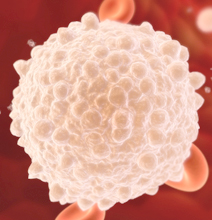Hormonal therapy

Hormonal therapy is a cancer treatment that blocks the interaction between cancer cells and the body's hormones, in particular estrogen and progesterone.
About 75% of all breast cancers are ER or PR positive, meaning that their cells have receptors for estrogens (ER+) or progesterone (PR+) hormones. When the hormones bind their specific receptors, they trigger the cells to divide and the tumor grows. Hormonal therapy blocks their interaction.
The hormones are found in the blood, and can be either endogenous (produced by the body) or exogenous (coming from outside sources, such as birth control pills or hormonal replacement therapy).
Breast tumors that are ER+ normally respond well to hormonal therapies that block estrogen action.
In fact, hormonal therapy is recommended for all tumors expressing ER, and has been shown to reduce disease recurrence in 41% and the number of deaths after 5 years in 34%
In the specific case of Tamoxifen - the best studied hormonal therapy– as much as 60-70% of breast cancers positive for both ER and PR respond to treatment, compared with less that 10% for cancers without these receptors,
Hormonal therapy for palliative care
In palliative care, hormonal therapy is always the first option for tumors positives for hormone receptors. This is because hormonal treatments are not only the least toxic breast cancer treatment, but are also effective for a long periods of time and show similar survival rates to chemotherapy in this particular group of patients.





